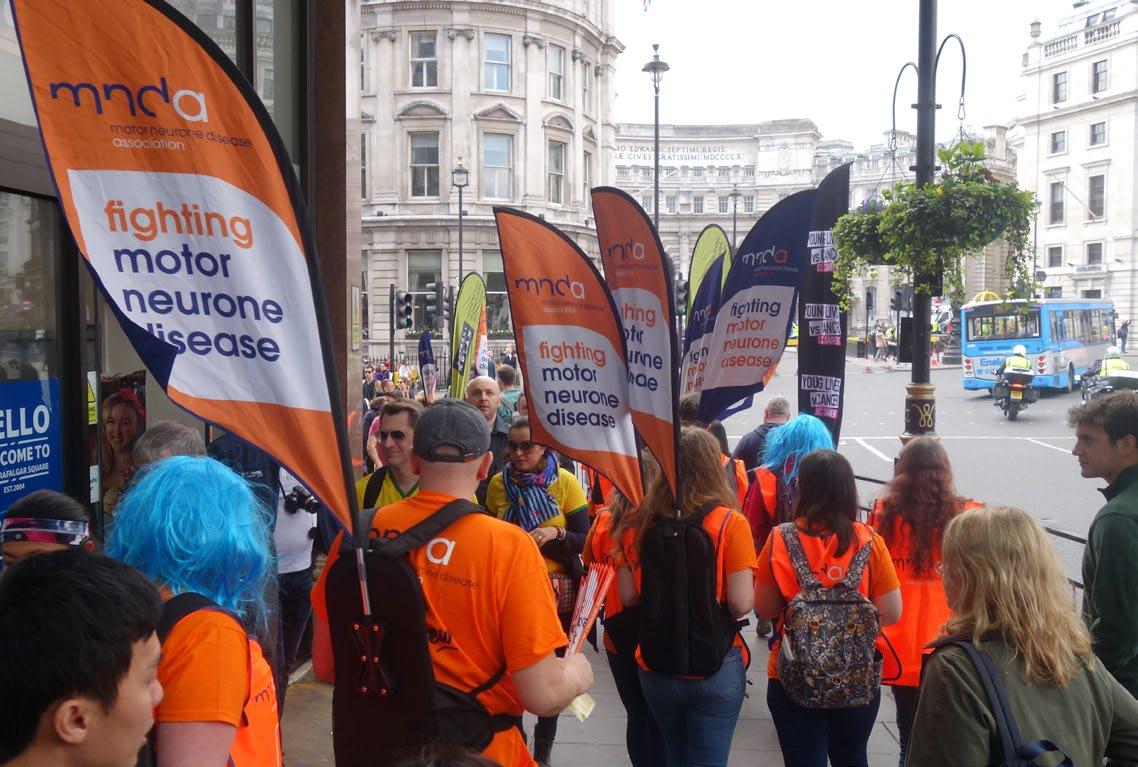
1 minute read
Kick-starting new research
We continue to drive collaboration between research institutes and funders. In June, we contributed £1 million to a new £4.25 million grant to kick-start a collaborative MND research effort across six UK universities.

Advertisement
The funding was pooled through the UK-wide MND Collaborative Partnership formed to speed up progress and help research move towards the clinic and, ultimately, reach patients faster. The partnership team is working to find solutions to problems currently hindering MND research by improving laboratory drug testing practices, further developing the MND Register to gather more comprehensive information on the disease and supporting people to take part in clinical trials more easily.
£2.4m was invested in supporting clinical trials
The results of the MIROCALS clinical trial show encouraging signs of chinks in the armour of this disease as we continue with our research to develop effective treatments for MND.”
Dr Brian Dickie, Director of Research Development

The trial investigated the use of interleukin-2 (IL-2) as a treatment for MND with results revealing the risk of death at 21 months decreased by more than 40% (for eight in ten of those who received the treatment).
Results were announced at our annual International Symposium on ALS/MND in December, which brought together the world’s leading MND researchers to showcase latest developments – a total of 1,292 delegates from 44 different countries.
We are a step closer to more accurately measuring the progression of MND, thanks to Project AMBRoSIA, which we funded with the support of London City Swim Foundation and the Linbury Trust. Currently, neurologists use the ALSFRS-R scale which relies on self-assessments and assessments by healthcare professionals. The research study has shown measurement of neurofilament light (Nfl) chain in blood is a reliable, and objective, indicator of MND progression. If adopted in clinics, Nfl tests could help neurologists monitor progression more effectively.
That, in turn, will lead to people with MND receiving more personalised care.
£1m was contributed to a £4.25 million grant to kickstart a collaborative research effort across six universities
£6.1m
Promise 2
We won’t rest until...










